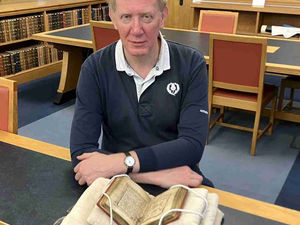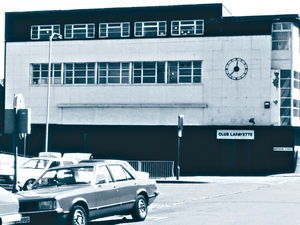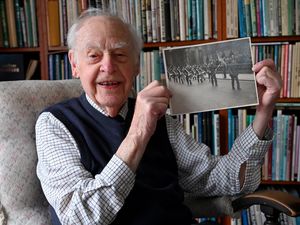Ripping yarns from an old-school reporter: Peter Rhodes on 50 years in journalism
From parish politics to major wars, Peter Rhodes has covered it all. Here he looks back on some favourite moments.
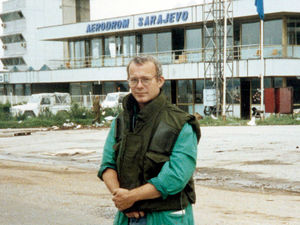
I’ve been lucky. I came into journalism in the 1960s, at a time when it was not a fashionable occupation.
Entry requirements were not too demanding and an apprentice’s salary was pitiful.
But the regional press was on the threshold of a golden age, a technological revolution that would produce healthy profits, well-staffed newsrooms and a generation of journalists, particularly on the big regional daily newspapers, who competed for readers with Fleet Street and were sent around the world to wherever the big stories were breaking.
As a rule, newspaper reports and features have a shelf life no longer than a loaf of bread. But some reports deserve preserving a little longer. And so, as the first lockdown was imposed last year, I began stringing together some of my favourite dispatches and memories in a little book entitled Bloody Adjectives. It is is published this week. Here are some extracts.
Lesson One: Everything was better in the old days. “There’s so much violence today,” the aged court usher complained during a recess in one particularly unpleasant assault case at Leamington Spa magistrates’ court in 1970. “When I was a lad there was nothing like this, no violence.”
He thought for a moment, wistfully, and continued: “Mind you, if a new kid came to the village we’d all tie him to the church gate and p*** all over him. But there was no violence…”
On great headlines that probably never happened. With his bare hands, a man killed a pitbull terrier as it attacked a child in a Scottish town. For its first edition the local newspaper carried the headline: “Hero saves toddler from devil dog.” It then emerged that the hero was a tourist from Wolverhampton. For later editions the headline was. “Englishman kills family pet.”
Early days. A regular job on the Leamington Courier in 1969 was golden weddings. There were at least one or two a week and I quickly became an old hand at interviewing couples who had been married for 50 years. I prided myself on being able to put the answer to the key question in my notebook (“Plenty of give and take, dearie”) before actually asking the question (“So what is the secret of a long and happy marriage?”)
My first fatal, 1969. I was sent with a photographer to a house fire. As we walked up the lane, a fire officer was coming the other way. “Much in it?” asked the photographer. “Fatal,” said the officer. Fatal? Someone was dead? I was shocked to be at the scene of a stranger’s death, shocked an hour or so later to be turning one family’s tragedy into front-page news. Later in the day the chief reporter read my copy, made a couple of changes and said: “Remember, Peter, just because you wake up fit and healthy in the morning it’s no guarantee that you’ll still be alive by bedtime.” He was right. Time after time, the sheer randomness of sudden death shocks and bewilders us hacks.
The child who falls from her bicycle on the riverside path and drowns. The farmer who catches his sleeve in a tractor power shaft and bleeds to death. The folk settling down to an evening by the telly in a little town called Lockerbie. They all got out of bed that morning.
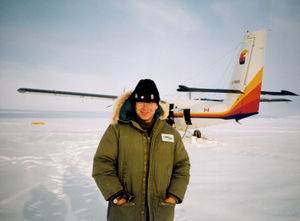
Dabbling with sports reporting, 1973. Sent to cover a non-league football match at Tadcaster, I was told by the chief reporter to use the Press Box. Oh, the glamour. I imagined a glass-fronted eyrie packed with topflight sports reporters breathlessly dictating their copy into a dazzling array of telephones and radio sets. It turned out that the Press Box at Tadcaster was something you stood on. “For a better view,” the chief reporter added helpfully. It was an old beer crate.
A Yorkshire interlude, 1973 The big perk, the news editor told me as he showed me around, was that my duty night would be Fridays which meant lots of free dinners with the various trade guilds and trusts which ran the city. I would, of course, require a dinner jacket. “So will the firm pay for that or do I put the suit hire on expenses?” I asked innocently. The news editor looked stern. “The Editor takes the view,” he explained, “that the sort of young gentleman who works for the Yorkshire Evening Press would already possess a dinner jacket.” My first week’s salary was £27. The cost of a new dinner jacket from Burtons was £27. Not a profitable start.
Instant justice. Justice in the city magistrates’ court could be delivered quickly. One drunk-driver was hauled up into the spike-trimmed Victorian dock looking like death, only a few hours after being nicked. “And how do you plead?” demanded the clerk. “Er… er…” A sharp-eyed cop spotted what was about to happen, grabbed the defendant by the collar and whisked him down the stairs as he erupted in a fountain of vomit and deep remorse. “Guilty,” came the faint, damp plea from below.
My first political meeting, 1970s. Nothing happened for about the first 30 seconds of that meeting. Then, as Renee Short warmed to her theme, she was suddenly interrupted by a man in the audience who stepped into the centre aisle, shouting and denouncing her. “Do not listen to this woman,” he shrieked. “This woman is a member of an unassimilated minority.” There was a gasp of outrage. And then another man, a local councillor red with rage, stormed down the hall and punched the heckler hard in the face – he went down like a sack of potatoes. So this is politics?
The new technology, 1981. The setting of words in type, an ancient craft conducted for decades by grumpy old printers operating the typewriter-from-hell known as the Linotype, was taken over by computers. Newsrooms which once clattered to the racket of dozens of typewriters, and the oaths of printers dropping slabs of print, fell silent. I attended a technology conference in Brighton where the latest computer gizmos, aimed at what was increasingly called The Media, was on display. At lunch I found myself sitting next to someone I vaguely knew from the printing works in Brum. “So what do you do?” I asked chummily. “Me?” he sighed. “I’m a dinosaur. A bloody dinosaur.”
Civil War, Sri Lanka 1983. The ghastly irony was that while this shell-shocked man was showing us a murder scene, life in beautiful, tourist-thronged Kandy was bubbling like champagne. We haggled for carved coconut elephants and yards of sari silk in the vast market. We took a sunset boat ride across the sacred lake with big, fat gouramis kissing at the surface. I cannot think of a more blissful evening yet the madness, like a mind-eating pandemic, was taking root.
Change in South Africa, 1986. At a beach near Cape Town our hosts took pains to show us the wicked old symbols of apartheid. The beach signs declaring: “White area” had been painted over. What they couldn’t explain was why the signs were still in place. If you’re serious about equal rights you don’t merely paint over the old signs, you rip them down.
The Falklands, 1988. A scandal over posies. For the victors, there is no shortage of flowers from family, comrades and islanders. For the vanquished, unknown in these distant graves, come occasional posies, wilting from the idiotic, unforgivable, 15,000-mile flight that pride and politics demand.
The Bush-Gorbachev Conference, Malta 1989 “There is someone important here,” whispered the receptionist. “Do you know his name?” “Gerasimov?” she ventured. “What? Do you mean Gennadi Gerasimov?” “Yes. That’s him in the bar,” she said pointing to the half open door. I went in and took a bar stool. Gerasimov, a big figure wrapped in a fur coat, took the next stool. I showed him my press pass. He nodded. And in that sweetest of sweet moments I had my scoop. For, at the very moment the Cold War ended and the world found a moment of joy and radiant hope, the Kremlin’s best-known spokesman was talking one-to-one not to the New York Times or the Washington Post, nor to Le Monde or the Times of London or BBC World Service. Gennadi Gerasimov was talking to the Express & Star from Wolverhampton.
Revolution in Moscow, 1990. In a subway by Red Square the man hustling to sell cheap Russian watches was a doctor. He made more money selling watches for a week than being a doctor for a month.” He wanted 10 dollars. I gave him 20. “You shame me, you shame me!” he exclaimed, close to tears. Not at all, I explained. “I’m a journalist,” I told him. “You give me information. I pay for information. No shame. Welcome to capitalism.”
First Gulf War, 1990. Out in Bahrain, there was a brief interview with the RAF’s oldest combat pilot in the Gulf, Squadron Leader Dave ‘Baggers’ Bagshaw who was 53 and a grandfather of four. He showed us some Christmas cards sent to his Jaguar squadron by children near their base back in East Anglia. One read: “Dear Dads and Men in the Gulf, we hope you don’t get shot for Christmas.”
The first Hercules into Sarajevo, 1992. The lift descended but halted at the next floor. The doors opened. Michael Nicholson of ITN was waiting to get in. Cool, steel-grey and on his umpteenth war, Nicholson was unflustered and unfettered. God knows where his kit was. He looked us up and down, we pair of provincial hacks in our rambling boots, anoraks and flak jackets, both trying to look cool and professional in the presence of a TV legend. Nicholson nodded at our flak jackets. “Expecting trouble in reception, are we?” he smiled
On the ground in Sarajevo. The terminal at Sarajevo was the saddest place I had ever seen. Windows were shattered by gunfire and the floor, crunching beneath our feet, was carpeted in shards of broken glass and thousands of Kalashnikov cartridge cases. The place had been shot up, wrecked with gunfire by people with too many bullets and not enough brains. Yet on the counters, still open, were the booking forms, ticket stubs and boarding cards of a saner age. Here, frozen in time, was the moment when normality was overwhelmed by madness and the airport workers, without even closing their books, fled before the gunmen. A Mary Celeste of airports.
Interviewing the Muppets, 1992. “You journalists know that there are public and private stances,” said Miss Piggy reproachfully. “Kermit cannot speak of me too much in a close way because many, many women will be hurt.” “Look,” protested Kermit in that familiar nasally singsong voice, “just trust the frog, okay? I’m telling you we will be spending Christmas separately.”
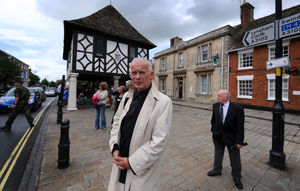
Vietnam, 1993. In the Chinese quarter of Saigon a group of women pointed and giggled and one of them approached our female guide and whispered to her. The guide looked mortified and blushed deeply. “What is it?” we asked. “These women,” she explained haltingly. “Well, the thing is, they want to know, would it be permissible for them to touch the ladies’ noses?” To their credit, the women in our party stepped forwards, hooters presented for inspection, and the Chinese ladies, by now shaking with laughter and wonder,touched these amazing Western noses. A little blow for Anglo-Vietnam relations.
Stalking seals near the North Pole, 1996. “Remember,” said the Mayor, “if you see anything black, it’s a seal.” I scoured the horizon. And there it was. It was big. It was black. It was an easy shot, no more than a couple of hundred yards away. I began to draw a bead on Blackie, the soon-to-be-late seal. Suddenly there was a hand on my shoulder. “Do not shoot that,” said Gary Guy. “Why not? It’s black. It’s a seal.” “No, it isn’t,” he said. “It’s my boat. It’s a converted landing craft and it’s at least five miles away.”
Princess Diana’s funeral, 1997. I squeezed myself against some railings near the palace and we all waited. And then it happened. It was the strangest sensation. Suddenly, above the hubbub of the crowd, you heard a distant tinkling of horse brasses and the low growl of the gun-carriage wheels on asphalt. All talking ceased. It was as though someone had laid a huge, sound-proof blanket over the people and only the rattle of the carriage could be heard. It swept past. There was a fleeting glimpse of the flag-draped coffin topped with lilies and I had a momentary vision of Diana’s face inside the coffin, at rest. I have attended dozens of funerals and never experienced anything like that moment.
The Boxing Day Tsunami, Maldives, 2004. In a matter of seconds the wall of water swept over the island. In her workshop, a block-built cabin with an ancient Singer sewing machine against one wall, a woman explained how the water had burst in under her door and rose in the hut until it was about six inches from the ceiling; the tide mark on the wall was still visible.
For a few frantic seconds she had been trapped under water and she expected to drown. And then the tsunami vanished as quickly as it had come. People hunted for their loved ones and, for a few minutes, all seemed well. And then they realised three children of the village were missing.
Wootton Bassett, 2009. Eight good men, part of that big camouflage-clad wall that protects this nation, passed before us. And when they had gone from our sight, a group of their loved ones embraced each other in the main street of Wootton Bassett, moving like one big, suffering creature as they howled in pain and grief.
The EU Referendum, 2016. Right from the early days of the campaign, if you looked hard enough, it was clear that out there in the provinces, ignored or overlooked by the mainstream national media, were many hundreds of thousands of people – some of whom never voted in other elections – who for all sorts of reasons wanted to leave the EU. And, to the astonishment of the BBC, ITV and most of Fleet Street, that’s what happened. Maybe the lesson will be learned. If you want to know which way the wind is blowing, by all means talk to a Professor of Advanced Wind-Blowing at the University of Gusts. So long as you also have a five-minute chat with an electrician from Walsall.
The Black Country – an appreciation: Back then in (1940) the bleakest days of the war, it was impossible to know how we would win. But with men like that, how could we possibly lose? That spirit endures today in the Black Country. A great place. Great people. And it has been a great experience working among them and writing for them, and about them. Bloody adjectives and all.
Bloody Adjectives: Ripping Yarns from Sleepy Hollow, published by Brewin Books. See brewinbooks.com.

